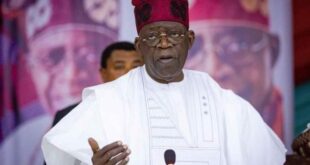Minister of State for Petroleum Resources (Oil), Heineken Lokpobiri, has assured that International Oil Companies (IOCs) are not divesting from Nigeria but are rather moving from onshore and shallow waters to offshore which requires more investment.
The minister’s statement comes amidst a 69 per cent decline in investments in Nigeria’s oil and gas sector in the last five years.
During the 7th Nigeria International Energy Summit (NIES) 2024 in Abuja on Tuesday, Lokpobiri stressed that the divestment of onshore assets by some IOCs is a win-win situation, as it makes room for indigenous companies to develop capacity within the onshore and shallow waters space.
The minister further highlighted the strategic management of the divestment processes.
According to Lokpobiri, the global decline of investments in the oil and gas industry between 2017 to 2022 saw Nigeria’s investments decline by 69 per cent in comparison to the 28 per cent global average decline.
The minister admitted that the window for attracting new investments and exploring Nigeria’s vast reserves is fast narrowing, and if the global energy transition accelerates, approximately 60 per cent of Nigeria’s reserves could be uncompetitive to produce.
In line with the government’s commitment to enhancing its crude oil reserves and production, the minister announced that Nigeria is open for business and ready to welcome investments.
He also highlighted the need to take bold and decisive actions to harness the vast hydrocarbon resources in the country.
To address the challenges associated with energy security, the government is taking a multi-faceted approach to boost the refining capacity in Nigeria.
This includes revitalising government refineries and encouraging private sector investment like Dangote, BUA, and numerous modular refineries.
Despite the clamour for nations to stop investments in fossil fuels, no country is slowing down fossil fuel exploration and production, as evidenced by recent developments in the UK and the United States.
Nigeria aims to ramp up production to serve as a feedstock to state-owned, private, and modular refineries, changing the narrative of Nigeria being a major refined petroleum products importer to an export hub.
With the government’s commitment to providing a business-friendly and enabling environment for potential investors, Nigeria is poised to maintain a stable investment climate and address the challenges in its oil and gas industry.
Subscribe to the Advocate News letter and receive news updates daily in your inbox.
 Advocate.ng Latest news update on politics, entertainment, sport and more
Advocate.ng Latest news update on politics, entertainment, sport and more




